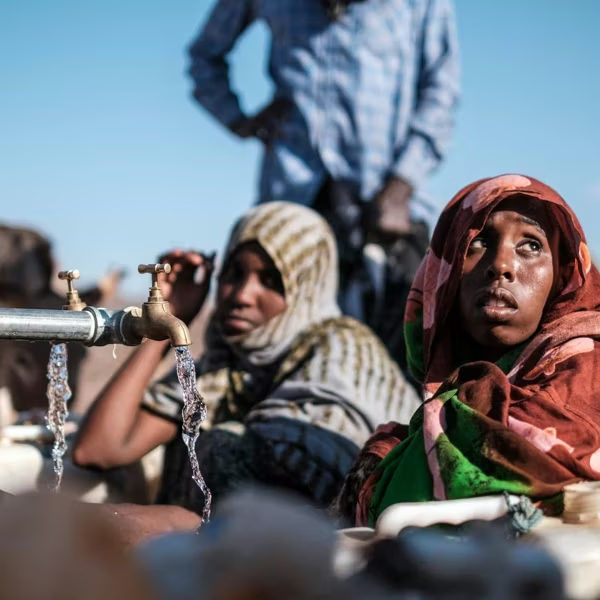In just the past week, we've seen record-breaking rainfall and wildfires plague parts of the United States. Globally, such extreme events appear to be increasing in frequency and magnitude. Droughts, floods, fires, and more can be seen as warning signs of impending ecosystem collapse at the planetary scale, with impacts felt in locales and regions around the world. While no single event may be able to draw a causal line directly from climate change, the cumulative correlation indicates escalating destabilization.
In this light, it seems plausible to invoke images of an "uninhabitable earth," including the issuance of dire predictions for the fate of humanity on this planet. Equally pointed phrases have entered the lexicon, such as depicting Earth's systems as an "angry beast," framing climate change as the equivalent of a "world war," or conceiving of humans as an "invasive species." These characterizations convey a deep sense of urgency, shock, and even grief in attempting to elicit proactive responses for our survival.
"We have before us a brief window of time in which to muster our collective resolve toward not only surviving the transformations at hand, but perhaps even learning how to thrive amidst them."
As poignant as these insights and warnings may be, however, I believe they miss the mark in some important ways. First, in their apocalyptic overtones, they can serve to foster an air of climatic inevitability and relative disempowerment to avert it, despite their ostensible intentions otherwise. The western ideal is simply too steeped in the lore and ethos of a self-fulfilling apocalypse to be adequately shocked into action by its invocation, and there is an abiding belief that science can save us in the end.
While many people have become inured to the "end times" and are enamored enough with the technology around them to believe in a kind of scientia ex machina salvation, many others are trapped on the other end of the spectrum: experiences of profound impoverishment and dislocation, with no end in sight. The resonance of images of planetary catastrophe for people simply struggling to make ends meet isn't likely to generate many viable pathways for change, even if the warnings are grasped.
And this gets closer to the core of problem. Many of the direst predictions paint the crisis with too broad a brush--not in terms of the magnitude of the challenges before us, but as to their origins and impacts. Oftentimes we're told that humans have impacted Earth's systems, or that the planet will become uninhabitable for humankind--as if these categories of causation are monolithic, or that the emerging consequences will affect everyone equally. We are all human, yes, but we experience the world differently.
Indeed, for many of the planet's inhabitants, patterns of destabilization are unfortunate features of daily life. Access to basic provisions of food, water, and energy can be intermittent, and in some places aren't available in sufficient quantities at all. Disruptions due to conflict, war, disease, displacement, colonization, gentrification, and similar occurrences regularly impact communities and cultures worldwide. Myriads of people live on the edge of survival already, and contribute relatively little to climate change.
It's one of the basic tenets of environmental justice that those who do the least to cause a problem frequently experience its worst effects. While this is well understood in the annals of environmentalism, somehow when the urgency of global cataclysm is in play, its teachings can go unheeded. And beyond misplaced attributions and the inequities of disparate impacts, an even deeper and potentially more potent lesson is often overlooked, namely the capacity of people to mitigate and adjust to changes.
From African farmers utilizing adaptive and innovative methods of food production, to local and regional networks applying mindful approaches to creating sustenance and transforming conflict, there are a plethora of effective and impactful examples for coping with the changes emerging. While we need global action to confront the planetary crises in our midst, important lessons can be drawn from the experiences of those for whom profound destabilization has already been the norm for some time now.
The one constant we can expect in the days ahead is rampant and escalating change. Perhaps the world has always been this way to some extent, and it was only an illusory sense of order and dominion that led to the complacency of control and the dismay of deterioration. Still, we have before us a brief window of time in which to muster our collective resolve toward not only surviving the transformations at hand, but perhaps even learning how to thrive amidst them with a deeper sense of justice and resilience alike.




